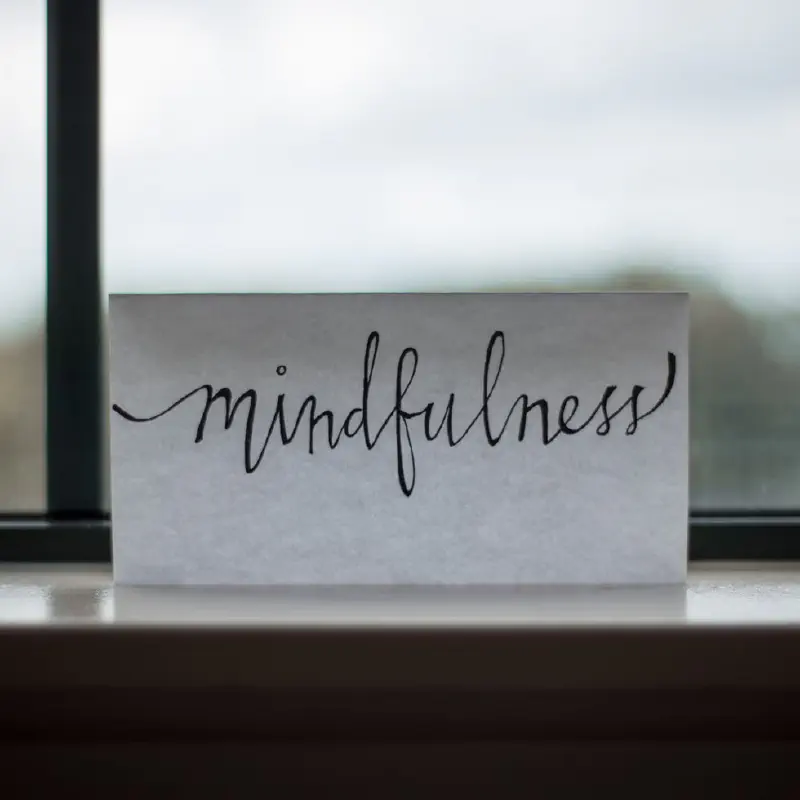Mindfulness is a mental state that is achieved by focusing one’s awareness on the present moment, while calmly acknowledging and not judging one’s feelings, thoughts, bodily sensations, and surrounding environment.
The practice of mindfulness can be used to improve one’s quality of life in many ways: it can help reduce stress, improve relationships and increase self-acceptance and compassion for oneself as well as others.
What is Mindfulness and How Do You Practice It?
Mindfulness can be practiced in many ways, such as meditation, yoga, prayer or simply taking time to sit quietly and focus on your breathing. The benefits of mindfulness are numerous. People cite mindfulness to help with improving sleep, helping them feel less anxiety, among many other benefits.
How to Start a Mindfulness Journey and Make It a Habit
Mindfulness is the practice of being fully aware of the present moment without judgment. It has been shown to help people with anxiety, depression, and even addiction.
There are many ways that you can start a mindfulness journey and make it a habit. One way is to start small by spending five minutes per day focused on your breathing. You can also try practising mindfulness in various places like during your commute or while you eat lunch at work.
Is mindfulness religious?
You may hear many people talk about mindfulness as an activity that’s mentioned in religious or secular traditions. In case it’s making you too conscious, you may want to know that practising mindfulness does not make you religious. Teaching mindfulness is a strictly secular practice. It is not religious, and it is not exclusive to any group of people or belief system.
How To Practice Mindfulness – Tips And Tricks For People Who Are Starting Out
Now that you have a fair idea about what mindfulness is, here are some tips for you to get started.
Breath as an Anchor: There are many ways to be mindful in your life. One of the most common techniques is mindful breathing. Breathing is a natural and easy way to bring yourself back into the present moment. It’s also a great way to calm down when you’re feeling stressed or anxious. Breathing exercises can help you develop a mindfulness practice that can be used in any situation. You can start by paying attention to your breathing. Take a deep breath in, then breathe out slowly. Do this for about 10 minutes or until you feel calm and relaxed. - Try not to judge your thoughts as good or bad, just notice them and let them pass. - Spend some time by yourself each day while doing this practice. It’s okay if you may feel distracted by technology or external sounds - simply notice them and bring your attention back to your breath .
Practice Mindfulness in Your Everyday Life: When you’re eating, eat slowly, savouring every bite of food that enters your mouth. When you’re walking, pay attention to what’s around you. Watch the trees swaying in the wind. Listen to the sounds of birds. When you are doing home chores or even daily routine tasks like brushing your teeth or showering, bring your attention to the task itself, focusing on the sensations, smells and sounds that come with it.
- Mindful Listening: In our friendships, relationships and conversations, mindfulness can also be practiced as we listen and engage with people. Try to offer your full attention to the person speaking to you, notice your breath, and listen to them without judgement, criticism or interruption. It’s okay to be aware of your internal thoughts and reactions while communicating with people too - try to gently bring your attention back to the present moment and tune into the conversation.
Is mindfulness for everyone?
The biggest advantage of mindfulness is how it helps ground you without costing you any money. While you can choose to start a subscription to a meditation app, you can still practice mindfulness without it.
One of the core benefits of mindfulness is to ground yourself from the thoughts or situations that are ‘distracting’ you. That being said, it may not be possible for everyone.
Practicing mindfulness in toxic, abusive or stressful situations may not be possible for most people. This does not mean that one has failed at coping, it just implies that the present moment is extremely triggering or stressful, and distraction from it is a useful coping strategy too.
If you’re not feeling aligned with mindfulness, that’s absolutely okay. At the end of the day, the point is to find a way to cope that makes sense for you and that fits with your needs.
Mindfulness can be one of many possibilities of coping and dealing with life stressors.



















